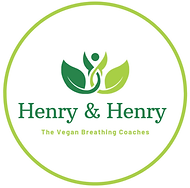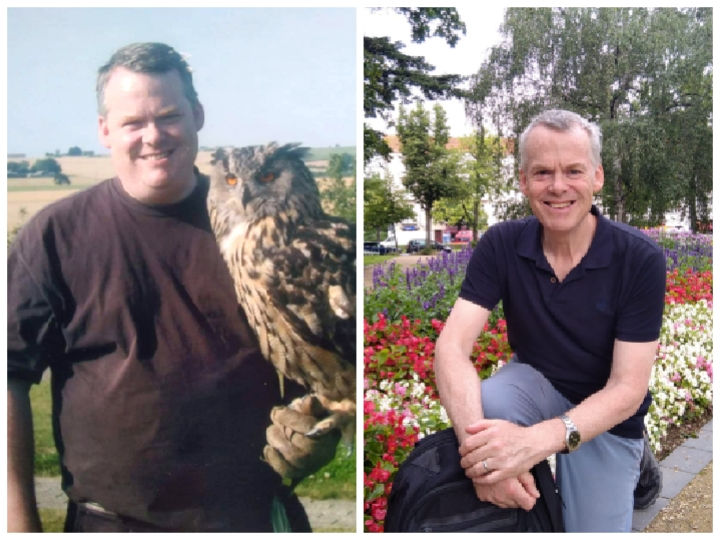To Tape or not to Tape, that is the Question
- Henry & Henry

- May 26, 2025
- 4 min read
Updated: May 30, 2025
Any avid viewer of the BBC programme Dragon's Den¹, will almost certainly recognise the ‘dragon’, Peter Jones, in the photo, despite the blue rim to his mouth. A super keen viewer may wonder how they managed to miss this episode. In fact, it never made it to our screens.²
Peter Jones is wearing MyoTape, one of a growing number of mouth tape products (we recently found another brand in our local drugstore). As a concept, mouth taping has hit the mainstream thanks in no small part to its popularity on Tik Tok but it's also being popularised by celebrities including sportsmen and women. So what's it all about? Does it merit the hype? Is it even dangerous? And if you use it, does it matter how you keep your mouth closed, or in other words, does the type of tape matter?
The Problem with Mouthbreathing
It's an incontrovertible truth that breathing through your mouth while you sleep can be detrimental to your health and quality of day-to-day life. Do you wake up in the morning with a dry mouth? If you do, you probably spend at least some of the night with your mouth open. As a minimum this will dry your airway making it more susceptible to inflammation. It makes snoring more likely (one of the main reasons people are using tape) and snoring is likely to be disruptive, not just to anyone who can hear it, but also to you. It's likely to intrude on your sleep, even if you're unaware of the disturbance. At the more dramatic end, you may stop breathing altogether as having your mouth open makes it more likely that your tongue will fall into your throat and block your airway, especially if you sleep on your back. If this happens 5 or more times per hour (on average), you have sleep apnoea, along with almost a billion other people worldwide, whether or not they know it. The knock-on effects of this are not uplifting, so I'll spare you the detail here.
The Wonderful Nose!
On the plus side, by breathing through your nose night and day, you're keeping your airway moist. The incoming air is filtered and warmed and as you breathe in you're harnessing the nasal nitric oxide, NO, that collects in the paranasal sinuses. NO helps to keep the airway dilated and its anti-pathogenic qualities mean it's antiviral and antibacterial. It's quite literally your first line of defence. None of these benefits can be attributed to breathing through the mouth. Not one.
So, Taping, Yes or No?
Does all this mean we advocate the use of mouth taping at night? Hmm.. yes, with provisos. Anyone who wakes up with a dry mouth in the morning / who mouth snores / has hypopneas and or apnoeas can be helped by having a closed mouth at night and breathing through the nose. Taping isn't the only answer and, in fact, we emphasise retraining breathing to make it nasal day and night. Retraining breathing to breathe through the nose at night, whilst doable for some, isn't always easily achieved by everyone and this is when taping can be particularly useful. And the type of tape matters.
Types of Tape
You may have seen reports of some elite sportsmen and women training with tape fully covering their mouths. Iga Świątek, the Polish tennis player is one such example. Her trainer encouraged her to do this and with good reason, the training benefits can be significant. But she's fit, healthy and not asleep. In an emergency, she could easily whip the tape off. There's less certainty that we can do this while we sleep which is cause to proceed with caution, especially for certain categories of people e.g. children (never tape a child's mouth fully). And anyone with sleep apnoea, especially moderate to severe sleep apnoea for whom emergency ‘mouth puffing’ may be essential.
A strip of tape intended for use on the skin can be used vertically across the lips, enabling emergency mouth puffing at either side. This is a particularly inexpensive option and such tape is easy to find at drugstores and pharmacies.
Safer still, is tape that fits around the mouth such as the MyoTape³ that Peter Jones is wearing in the picture. This tape is elasticated and draws the lips together, persuading, rather than forcing them to stay shut. This tape was initially developed for children for whom mouth breathing can have pretty awful consequences. It serves as very useful nasal-breathing support. This is also the tape that I feel comfortable to recommend to students with sleep apnoea as it allows for emergency mouth puffing. We recommend (but don't sell) MyoTape, as it is safe, easy to use, comes in 3 different sizes, different colours, has a version for use with beards and is vegan which is important to us.
Do We Tape at Night?
Despite our enthusiasm for MyoTape, we most typically use a strip of skin friendly tape vertically across the lips. I say ‘we’, I taped for a few months because you can't know for sure how you're breathing at night and I consider it unacceptable to recommend the practice to others without experiencing it myself. Now only one of us tapes every night and consequently mouth snoring never happens. When people question how romantic this is, I typically tell them it's more romantic than snoring. But I'd go further. Whilst it's clearly of benefit to Graham not to snore, his initial use of the tape was significantly motivated by his wish to enable me to sleep; I tend to see it therefore as an act of care and love which trumps any superficial romanticism every time.
~ Annette Henry

¹Dragon's Den is a BBC television programme where entrepreneurs pitch their business ideas to a panel of wealthy investors, known as "Dragons", in the hope of securing investment from them for their business.
²A pitch by one of the entrepreneurs, not the one linked to the photo here, was deemed unsuitable as the product was portrayed as being a cure for ME, Chronic Fatigue.
³www.myotape.com MyoTape is Patrick Mckeown's product. As well as being vegan, MyoTape is PFAS-free. (PFAS are per-andpolyfluoroalkyl substances which are man-made chemicals. They are persistent chemicals and can accumulate in the environment and in humans and in humans thus raising concerns about potential health and environmental risks).



)_20230830_134131_0000.png)



Comments